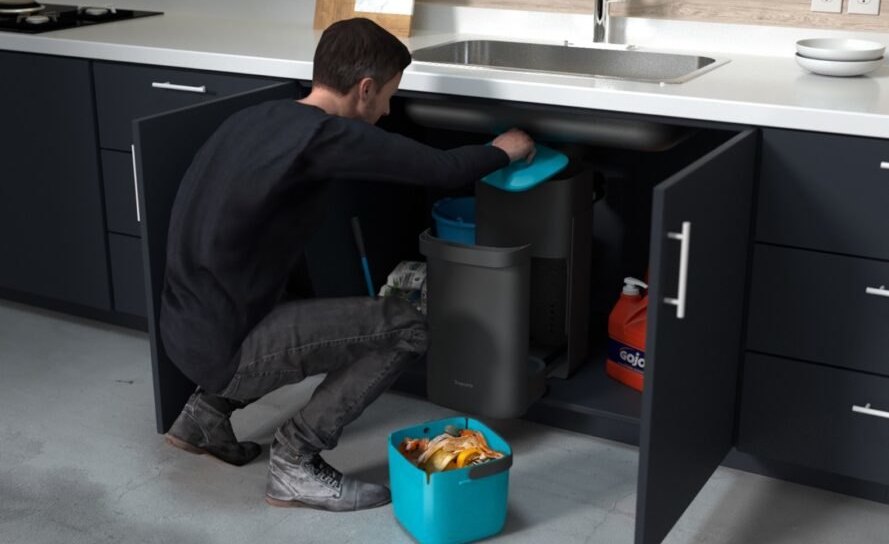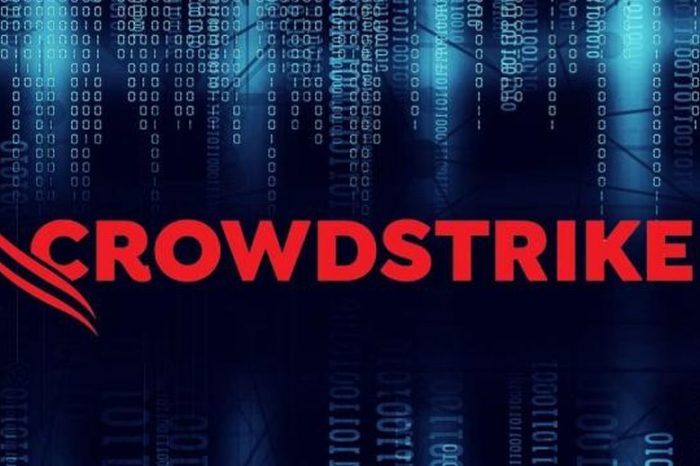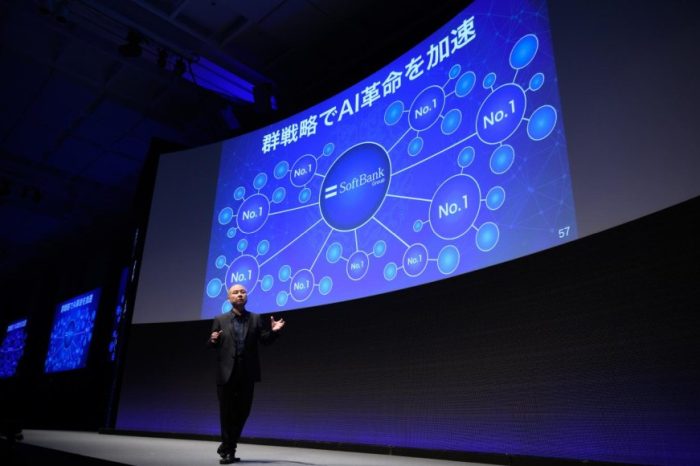Top tech startup news for Tuesday, April 4, 2023: Frank, JPMorgan, Orbs, Makerverse, Sepura, and Virgin Orbit

Good evening! Below are some of the top tech startup news stories for Tuesday, April 4, 2023.
Sepura Home closes $3.7 million in seed funding to make your kitchen sink a composter
Say goodbye to garbage disposals. Sepura Home, the maker of a high-tech garbage disposal replacement, announced today it has secured $3.7 million in a seed funding round to accelerate the production and delivery of its product. The round was led by sink-maker Blanco. The new cash infusion will enable Sepura Home to rapidly scale the North American market for its waste-separating device at the velocity consumers are demanding.
Since its launch a few years ago, Sepura has changed the standard garbage disposal system commonly found in households. SEPURA’s smart composter effectively separates solid food waste and liquids, while allowing the waste to flow through plumbing under the sink – resulting in an odorless sealed container that provides convenience and an eco-friendly way to manage food waste.
By seamlessly connecting to the plumbing under the sink, SEPURA’s smart composter employs innovative technology to effectively separate 99.9% of solid waste that goes down the drain, while allowing liquids to flow through. The end result is a sealed and odorless container that provides a convenient and eco-friendly way to dispose of food waste.
“SEPURA represents a significant step forward in sustainable living. With its advanced technology and user-friendly design, SEPURA offers a simple and effective way to minimize waste and promote a cleaner, healthier environment,” said Victor Nicolov, co-founder and CEO of SEPURA. “We are excited to bring consumers the sustainable solution they are seeking and work to improve how food waste impacts the environment moving forward.”
With over 3 billion tons of food waste generated globally each year, the need for sustainable waste management solutions has become increasingly urgent. In response, many cities across North America have imposed garbage disposal bans, while several states have made at-home organic waste separation mandatory. This regulatory and consumer shift away from traditional garbage disposals presents a significant opportunity for SEPURA to offer a more sustainable alternative. By reducing the amount of food waste sent to landfills and converting it into nutrient-rich compost, SEPURA is poised to capitalize on the regulatory and consumer shifts away from garbage disposals and towards a sustainable alternative.
AInstein is a ChatGPT-powered robot developed by Cyprus students to harness and improve teaching experiences in classrooms
The popularity of OpenAI ChatGPT has also led to a boom in the adoption of generative artificial intelligence (AI) and big tech companies and small startups alike are in a race to integrate it into their products. Last month, Salesforce launched EinsteinGPT, an LLM product that uses an OpenAI ChatGPT model to integrate with Salesforce’s main web app product that keeps track of how often salespeople contact leads. Instead of manually writing emails, EinsteinGPT can automatically write marketing emails.
Salesforce is one of the many tech companies integrating ChatGPT into their products. But the integration of ChatGPT is not limited to tech companies. Schools and colleges are also using ChatGPT to develop a new set of tools to improve the learning experience for students. The latest is Pascal Schools in Cyprus.
According to a report from Reuters, teachers and high school students at Pascal Schools in Cyprus have developed a prototype robot powered with ChatGPT to harness and enhance classroom teaching experiences.
Dubbed AInstein, a compact robot resembling a sculpted Michelin Man and roughly the size of a small adult was created by three Pascal Schools in Cyprus. It is powered by ChatGPT, a chatbot created by U.S. company OpenAI, with Microsoft as its supporter. The robot features a screen face that imitates human expressions with frowns and blinks.
AInstein, which currently speaks with a US accent, can tell jokes (Why was the maths book sad? Because it had too many problems), attempt to speak Greek, and advise on how Albert Einstein’s theory of relativity can be taught in class. For now, AInstein doesn’t have a favorite movie since it was “before his time”, he says. However, AInstein enjoys reading science books and spending leisure time with his violin.
In a statement, 16-year-old Richard Erkhov, who is also the lead programmer of the AI brain, said artificial intelligence was poised to improve exponentially. “It might help in a lot of spheres of life, such as education and medicine,” Erkhov told Reuters.
Another student, Vladimir Baranov, 15, said the technology was “incredible.” “It mimics human thinking, answers like humans, responds like humans. It is not yet very polished .. But it is getting there,” he explained.
Berlin-based startup Makerverse lands $10M in funding to grow its AI-powered platform and expand on-demand manufacturing
MakerVerse, an on-demand AI-powered manufacturing platform, has raised $10 million for our Series A funding round led by 9.5 Ventures, with participation from Siemens Energy and ZEISS. The Berlin-based Berlin, Germany-based tech startup will use the new cash infusion to expand its advanced manufacturing offerings and help companies build resilient supply chains.
Founded in 2022 by CEO Dr. Markus Seibold, COO Ward Ripmeester, CTO Manish Katoch, and CFO Tim Schark, MakerVerse provides a one-stop shop platform combined with a fully-vetted global supply chain for various advanced manufacturing, including CNC machining and 3D printing, allowing businesses to create resilient supply chains and readily acquire parts.
This enables companies to build resilient supply chains and easily source parts for prototyping, serial production, and other uses. AI-powered instant quotes ensure customers can put their parts into production quickly. With an initial focus on Germany, the company has diverse customers throughout Europe and internationally, including multinationals, mid-size companies, and start-ups.
Commenting on the funding, Tim Schark, CFO MakerVerse stated on funding “We’re thrilled to have closed this funding round, especially in light of the uncertainty in global economic conditions and in the venture capital world,” said Tim Schark, CFO of MakerVerse. “This funding round highlights the benefits and uniqueness of our set-up, which combines the strategic advantages of corporate investors with the speed and expertise in innovative business models of VCs.”
Adding to it CEO, Dr. Markus Siebold commented “The last year has really proven that companies want a simpler way to innovate, our platform makes it easy to access advanced manufacturing technologies. With the additional funding, we will expand our technologies and help companies with even larger projects to drive further innovation.”
MakerVerse’s platform provides a one-stop-shop concept for advanced manufacturing, including CNC machining and 3D printing, allowing businesses to create resilient supply chains and readily acquire parts. With an initial focus on Germany, the company has diverse customers throughout Europe and internationally, including multinationals, mid-size companies, and start-ups.
Orbs releases Single Nominator Smart Contract to enhance TON validator Security
Orbs, a prominent TON ecosystem contributor, today announced the release of the Single Nominator smart contract for TON validators. This ingenious solution enables secure TON blockchain validation using an air-gapped cold wallet designed explicitly for validators with sufficient self-stake to validate independently without relying on third-party nominators.
The Single Nominator contract provides a simplified alternative to the Nominator Pool smart contract developed by the core team, which significantly reduces the attack surface and boosts security by only supporting one nominator.
The contract has been thoroughly audited by Certik, TON’s most reputable auditor and major blockchain auditor, which recently announced a partnership with TON to audit future projects on the network.
Orbs, known for its projects such as TON Minter and TON Contract Verifier, developed the Single Nominator contract in-house to provide enhanced security for validators who both stake their funds and run a TON validator node.
This tool considered the most secure and robust option for running a validator node on TON, is now offered to the community as a free, open-source product.
The Single Nominator contract also mitigates potential attack vectors by separating the validator node’s hot wallet from the principal staking funds, protecting the balance from gas spending attacks, and allowing the owner to change the validator address in case of a compromised wallet.
Millennial CEO and founder of fintech startup Frank charged with defrauding JPMorgan of $175 million
Charlie Javice, the 31-year-old founder and CEO of fintech startup Frank, has been charged with fraud. Javice was charged with defrauding JPMorgan in its $175 million acquisition of the college financial planning website by falsely inflating the number of its users, Bloomberg reported.
According to the report, Javice was charged by federal prosecutors in Manhattan on Tuesday with one count of conspiracy to commit bank and wire fraud, one count of wire fraud, one count of wire fraud affecting a financial institution, and one count of bank fraud.
In a statement Tuesday, Manhattan US Attorney Damian Williams said:
“As alleged, Javice engaged in a brazen scheme to defraud JPMC in the course of a $175 million acquisition deal. She lied directly to JPMC and fabricated data to support those lies—all in order to make over $45 million from the sale of her company. This arrest should warn entrepreneurs who lie to advance their businesses that their lies will catch up to them, and this Office will hold them accountable for putting their greed above the law.”
Following the announcement, Javice said: ‘Don’t want to end up in orange jumpsuits,’ US claims.
We first covered the story in January after Wall Street bank JP Morgan filed a lawsuit against the founder of the buzzy fintech startup it acquired for allegedly lying about its success by creating 4 million fake customer accounts to entice the financial giant to buy it.
Frank was founded in 2016 by former CEO Charlie Javice to make the application process for college student loans faster and easier. During its time of operation, Frank claimed to offer software aimed at improving the student loan application process for young Americans seeking financial aid.
Virgin Orbit files for bankruptcy
In an unsurprised announcement, British billionaire Sir Richard Branson’s rocket company Virgin Orbit on Tuesday filed for Chapter 11 bankruptcy protection in the U.S. after failing to secure a funding lifeline. In a filing at the U.S. Bankruptcy Court in the District of Delaware, the California-based satellite launch company said it’s looking to sell its assets, Reuters reported.
The news comes just four days after the company announced it was laying off approximately 85% of its workforce after the January mishap left the space company scrambling for new funding and forced it to cease operations.
Last week, Virgin Orbit failed to secure funding from Texas-based venture capital investor Matthew Brown via a private share placement to prepare for its next mission. In January, Virgin Orbit rocket LauncherOne launched from a jumbo jet suffered an anomaly that prevented it to deploy nine small satellites into lower Earth orbit.
“While we have taken great efforts to address our financial position and secure additional financing, we ultimately must do what is best for the business,” Hart said in a statement Tuesday.
“We believe that the cutting-edge launch technology that this team has created will have wide appeal to buyers as we continue in the process to sell the Company. At this stage, we believe that the Chapter 11 process represents the best path forward to identify and finalize an efficient and value-maximizing sale,” he added.
Virgin Orbit said a commitment from Virgin Investments had allowed the company to secure $31.6 million in new money through “debtor-in-possession” financing. This process, also known as DIP financing, “refers to funding for businesses that have filed for Chapter 11 bankruptcy protection to allow them to keep operating.”
Founded in 2017 by billionaire Richard Branson as a subsidiary of Virgin Group, a British multinational conglomerate, Virgin Orbit’s mission is to provide affordable and flexible launch services for small satellites, using a unique air-launch system that enables rockets to be launched mid-flight from a modified Boeing 747 aircraft named “Cosmic Girl”.




